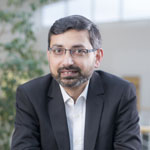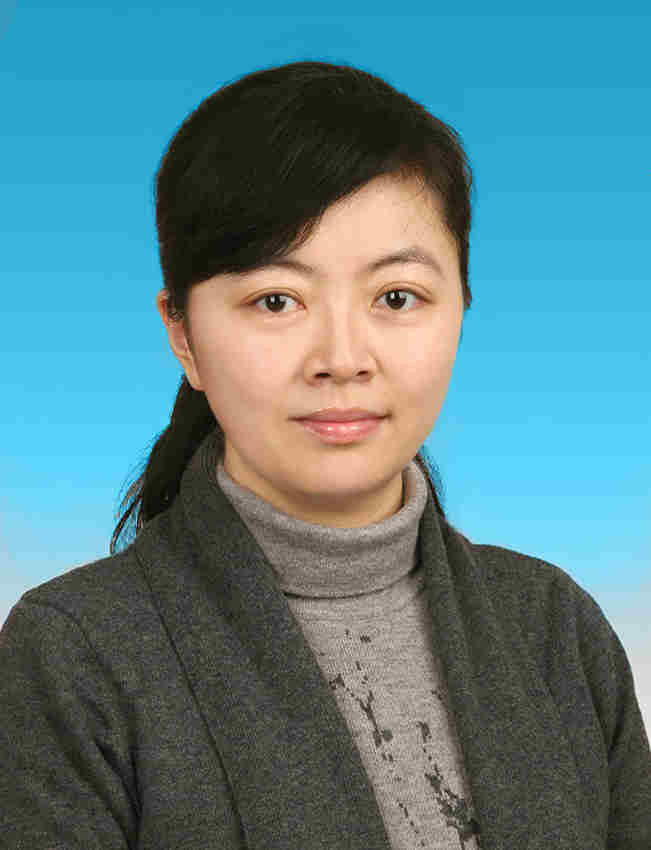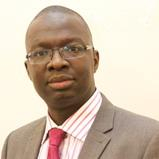Keynote Speakers
Julie McCann
Department of Computing
Imperial College London, UK

Professor Julie McCann is the Imperial lead for the Intel Collaborative Research Institute on Sustainable Connected Cities.
She leads Adaptive Emergent Systems Engineering (AESE) group She is Co-Principle Investigator on both the NEC Smart Water and Cisco Future Cities projects.
She has been a Fellow of British Computer Society since 2012 and a member since 2009. McCann is regularly invited to talk on self-adaptive
computing to a range of audiences.
Professor McCann is an active programme committee member for many of the self-managing adaptive computing journals and conferences.
She has also co-chaired conferences such as IEEE Self-Adaptive and Self-Organising Systems (SASO’11), IEEE Intl. Conf. on Complex Open
Distributed Systems and the ACM Intl. Conf. on Pervasive Services 2008 and 2009 (General Chair). McCann is regularly invited to talk on
self-adaptive computing to diverse audiences and has been an invited panel member ACM/IEEE International Conference in Autonomic Computing
and IFIP/IEEE International Symposium on Integrated Network Management.
In the past she lectured Operating Systems courses and currently leads the Pervasive Computing option.
Glasgow College UESTC
University of Glasgow, UK

Professor Muhammad Ali Imran received his M.Sc. (Distinction) and Ph.D. degrees from Imperial College London, UK, in 2002 and 2007, respectively. He is currently a Reader in Communications in the Institute for Communication Systems (ICS - formerly known as CCSR) at the University of Surrey, UK. He has lead a number of multimillion international research projects encompassing the areas of energy efficiency, fundamental performance limits, sensor networks and self-organising cellular networks. He is also leading the new physical layer work area for 5G innovation centre at Surrey. He has a global collaborative research network spanning both academia and key industrial players in the field of wireless communications. He has supervised 20 successful PhD graduates and published over 150 peer-reviewed research papers including more than 20 IEEE Transaction papers. He has been awarded IEEE Comsoc’s Fred Ellersick award 2014 and FEPS Learning and Teaching award 2014 and twice nominated for Tony Jean’s Inspirational Teaching award. He is a shortlisted finalist for The Wharton-QS Stars Awards 2014 for innovative teaching and VC’s learning and teaching award in University of Surrey. He is a senior member of IEEE and a Senior Fellow of Higher Education Academy (SFHEA), UK.
School of Telecommunications Engineering
Xidian University, Xi'an, China

Professor Zan Li, received her Ph.D degree at Xidian University, China, in 2006. Currently, she is a professor of Xidian University and the chair of cognitive and communication signal research center in State Key Laboratory of Integrated Services Networks (ISN) of China. She is IEEE Senior Member and the associated editor of the International Journal of Communications Systems. Meanwhile, she is also the editorial board member of some international journals. She is the general chair of IEEE CITS 2016 and served as the organizing committee co-chair of IEEE CIT 2014. She also served as the technical program committee member of IEEE GLOBECOM 2015, IEEE ICC 2015, and so on. She was recruited as the Yangtze River scholar of Education Ministry of China and awarded the thirteenth “China Youth Science and Technology Award”. Her current research interests include cognitive frequency hopping, wireless communication signal processing, and spectrum sensing. She has been in charge of more than 30 researching projects, including the Major National Science and Technology Projects of China, the National 863 project of China, and the National Natural Science Foundation of China. Up to now, she has published more than 140 papers academic journals and conference, such as IEEE Trans. on Communications and IEEE GLOBECOM.
School of Computing, Mathematics & Digital
Technology
Manchester Metropolitan University, Manchester, UK

Professor Han is Deputy Director of Informatics Research Centre and MMU Crime and Well-Being Big Data Centre, and is leading a research group "FUNDS-Future Networks and Distributed Systems" within the School of Computing, Mathematics and Digital Technology at the Manchester Metropolitan University. Dr. Han has successfully contributed to over 12 important projects in UK and China, funded by the EPSRC (Engineering and Physical Sciences Research Council), EU-FP7, TSB (Technology Strategy Board), Chinese Government and industries. She is a member of EPSRC Peer Review College, an independent expert for Horizon 2020 proposal evaluation/review and British Council Peer Review Panel. Dr. Han is also a reviewer for IEEE computer society and Journal of Parallel and Distributed Computing, Journal of Information Science from Elsevier science, IEEE Transaction on Service Computing, Brain Computing, IEEE Transaction on Biomedical Imaging engineering, Bioinformatics, Brain Informatics, Clustering Computing, etc. and various international conferences and programme committee member of various International Conferences. She had been also involved in number of professional activities in UK and China.
School of Engineering
Manchester Metropolitan University, Manchester, UK

Bamidele Adebisi (Director of Engineering Materials Research Centre, Manchester Metropolitan University, UK). He received his Master’s degree in advanced mobile communication engineering and Ph.D. in communication systems from Lancaster University, UK, in 2003 and 2009, respectively. Before that, he obtained a Bachelor’s degree in electrical engineering from Ahmadu Bello University, Zaria, Nigeria, in 1999. He was a senior research associate in the School of Computing and Communication, Lancaster University between 2005 and 2012. He joined Manchester Metropolitan University, Manchester in 2012 where he is currently a Reader (Associate Professor) in Electrical and Electronic Engineering. He has worked on several commercial and government projects focusing on various aspects of wireline and wireless communications. He is particularly interested in Research and Development of communication technologies for electrical energy monitoring/ management, transport, water, critical infrastructures protection, home automation, IoTs and cyber physical systems. He has several publications and patent in the research area of data communications over power line networks and smart grid/homes/cities. In January 2017, he successfully completed a UK research council funded project ‘Smart in-building Micro-grid for Energy Management’ that received the Manchester Met University outstanding project of the year award. Bamidele is also an investigator of Triangulum, a (€24M) H2020 Smart Cities and Communities project as well as a co-investigator of City Verve, a £10M UK government funded project on IoT for on smart cities. He is a Chartered Engineer and a senior member of IEEE.